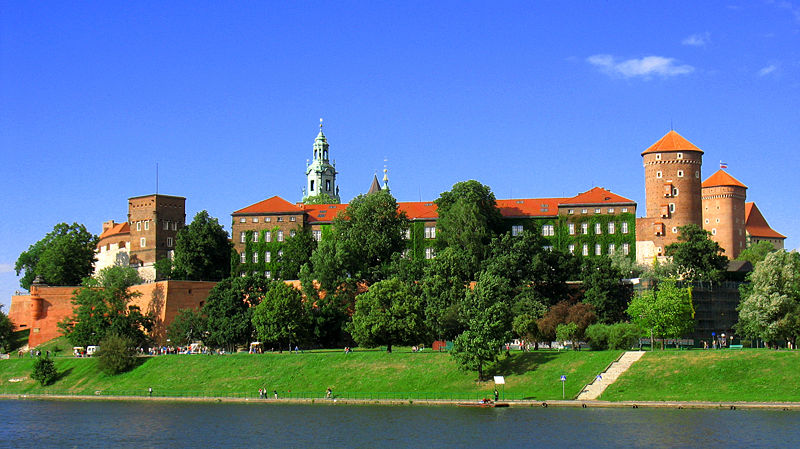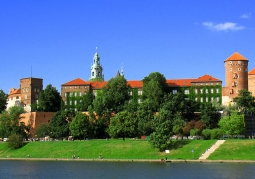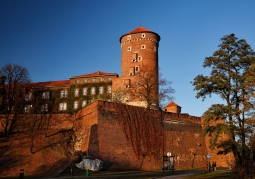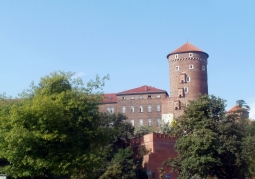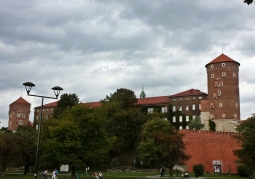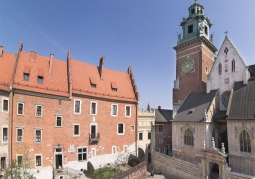No weather data
0.0 /5
Number of ratings: 0
Address: Wawel 5 , 31-001 Kraków
The castle was built when Krakow became the main seat of Polish rulers (the turn of the 11th and 12th century). At the beginning of the fourteenth century, it was expanded by King Władysław Łokietek. It was created then residential tower, called Łokietkowa. During Jadwiga's time, a representative tower, later called Danish, was built in its vicinity. In 1499 the castle was consumed by fire. From 1504 the castle was rebuilt in the spirit of the Renaissance. The architect Bartolomeo Berrecci largely influenced the work. The former medieval castle transformed into a palace-like residence, with an impressive arcaded courtyard, without losing its defensive function. After the fire (1595), King Zygmunt III Waza moved the court to Warsaw. Despite further work on the reconstruction of the castle, the slow decline of its splendor was felt. During the Swedish invasion (1655-1657), the castle was almost completely plundered. During the next century its degradation progressed, among others the former royal seat was replaced by Austrian barracks. It wasn't until 1905 that the castle was recovered. Slowly, efforts were made to restore its former splendor. After Poland regained independence in 1918, the work gained momentum. Valuable objects and works of art, which were taken away by the partitioners and during World War I, came back here again in 1939. During World War II, the castle was the seat of General Governor Hans Frank. Today, the castle contains several different exhibitions, including Representative Royal Chambers, Treasury and Armory and Private Apartments.
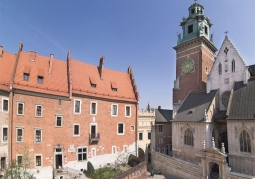
Cathedral Treasury Museum John Paul II
Category: MuseumsIt is located in the Cathedral House, a building integrated from two 14th-century houses. The eastern part is a former tenement house built during the times of Casimir the Great. The western part is the former Gothic...
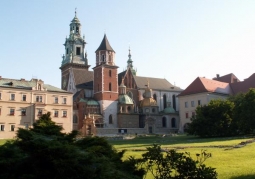
Royal Wawel Cathedral
Category: Cathedrals"The Wawel Cathedral has a unique position in the history of Poland and in the consciousness of the Polish Nation. For centuries, it has been a place of worship of St. Stanisław, which is inseparably connected with the...
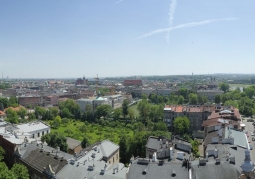
Sandomierz Tower in Wawel
Category: LookoutsSandomierska Tower - one of three towers on the Wawel Hill, located on its southwestern edge. Together with Baszta Lubranka (Senatorska), she creates a unique team called fire towers from the mid-15th century. It has...
Komentarze
No results
Nearby places

Royal Wawel Cathedral - Wawel Royal Castle - Old Town
Category: Cathedrals"The Wawel Cathedral has a unique position in the history of Poland and in the consciousness of the Polish Nation. For centuries, it has been a place of worship of St. Stanisław, which is inseparably connected with the...
1 km

Cathedral Treasury Museum John Paul II - Wawel Royal Castle - Old Town
Category: MuseumsIt is located in the Cathedral House, a building integrated from two 14th-century houses. The eastern part is a former tenement house built during the times of Casimir the Great. The western part is the former Gothic...
1 km

Sandomierz Tower in Wawel - Wawel Royal Castle - Old Town
Category: LookoutsSandomierska Tower - one of three towers on the Wawel Hill, located on its southwestern edge. Together with Baszta Lubranka (Senatorska), she creates a unique team called fire towers from the mid-15th century. It has...
1 km
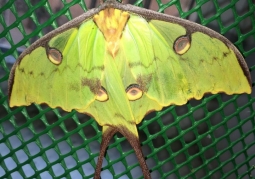
Museum of Live Butterflies - Old Town - Krakow
Category: MuseumsAn unusual museum - the Living Butterfly Museum is housed in a small room. Over 60 individuals live there, about 10 species. We can closely associate with exotic specimens, including from Asia and South America.
1 km
Nearby places

Royal Wawel Cathedral - Wawel Royal Castle - Old Town
Category: Cathedrals"The Wawel Cathedral has a unique position in the history of Poland and in the consciousness of the Polish Nation. For centuries, it has been a place of worship of St. Stanisław, which is inseparably connected with the...
1 km

Cathedral Treasury Museum John Paul II - Wawel Royal Castle - Old Town
Category: MuseumsIt is located in the Cathedral House, a building integrated from two 14th-century houses. The eastern part is a former tenement house built during the times of Casimir the Great. The western part is the former Gothic...
1 km

Sandomierz Tower in Wawel - Wawel Royal Castle - Old Town
Category: LookoutsSandomierska Tower - one of three towers on the Wawel Hill, located on its southwestern edge. Together with Baszta Lubranka (Senatorska), she creates a unique team called fire towers from the mid-15th century. It has...
1 km

Museum of Live Butterflies - Old Town - Krakow
Category: MuseumsAn unusual museum - the Living Butterfly Museum is housed in a small room. Over 60 individuals live there, about 10 species. We can closely associate with exotic specimens, including from Asia and South America.
1 km
